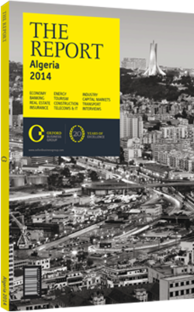Building sufficient affordable housing remains a major challenge
With a growing and young population and an urbanisation rate approaching 70%, Algeria’s housing deficit is a problem that has been at the centre of government policy for several years. The country’s current housing gap is estimated to be 1.2m homes, according to figures published by the South Africa-based organisation Centre for Affordable Housing Finance in Africa ( CAHFA) in its Housing Finance in Africa Yearbook 2013. The issue combines two major challenges, building sufficient homes at a timely pace and making them affordable. In fact, the housing gap is connected to income levels and economic ability, with the majority of housing needs centred at the lower-income levels of the population. This is particularly visible in the capital, Algiers. Figures from CAHFA estimate the housing price-toincome ratio in Algiers to be 13.8 times the average annual income in 2012. This prices the majority of Algerians outside of the housing market.
Reducing The Gap
The government focuses on making a large amount of low-cost dwellings available, distributing them as rental units and lease-to-own homes. However, waiting lists for these homes are long, and most of them require some type of down-payment. This situation has led to a range of undesirable living conditions, such as overcrowding and illegal occupation of areas with substandard housing.
Government policy has continued expanding social home construction under successive five-year programmes. This has enabled an increase in the number of existing homes to 8m in 2013, versus 5.4m in 2000, according to government figures. From 1999 to 2004, 810,000 homes were built, followed by 912,326 between 2005 and 2009, according to CAHFA.
In July 2013 Abdelmadjid Tebboune, the minister of housing and urban development, stated that by 2017, Algeria would be able to reduce the housing gap significantly through the conclusion and delivery of 674,000 homes in 2013 and an additional 265,000 homes per year over the following years. Including those homes built under the 2010-14 five-year plan, authorities want the total number of homes built under the state housing programme to reach 2.4m by 2017. Under the current five-year plan, which will run from 2015 to 2019, Algeria aims to build 1.2m homes.
Building Capacity
But the ambitions of Algeria’s housing programme remain limited by the country’s building capacity. According to CAHFA, there are currently 1800 public and private companies working with government contracts to build homes under the housing programmes, 1500 of which are Algerian. “The authorities said that government programmes would build 225,000 housing units a year, but the reality has been closer to 80,000. The reason is that construction companies do not make any money building these public housing projects and not a many firms are interested in carrying them out,” Darem Debsi, managing director of Arab Contractors, told OBG.
The lack of interest in housing programmes has encouraged the government to seek companies from abroad to come and work on some of these projects, sometimes through the signature of bilateral agreements. This has attracted Spanish, Portuguese, Italian, Turkish and Chinese contractors to low-income housing construction work in Algeria. Participants include Fomento de Construcciones y Contratas of Spain, Italy’s Costruzioni e Servizi, China State Construction and Engineering, and Portugal’s Prebuild. The government is hoping to sweeten the deal by putting in place fiveyear guaranteed acquisition contracts for companies working on the national housing plan. These will come in effect during the 2015-19 five-year plan.
A greater number of private operators will be needed in order to successfully bridge the housing gap, but this will be tricky under current conditions. Since the prices at which those homes can be sold need to be kept low, housing programme tenders lack a large number of interested contractors. In order to accelerate the construction of sufficient homes, authorities might be forced to eventually raise the level of return that private builders can get on public housing contracts.
You have reached the limit of premium articles you can view for free.
Choose from the options below to purchase print or digital editions of our Reports. You can also purchase a website subscription giving you unlimited access to all of our Reports online for 12 months.
If you have already purchased this Report or have a website subscription, please login to continue.

